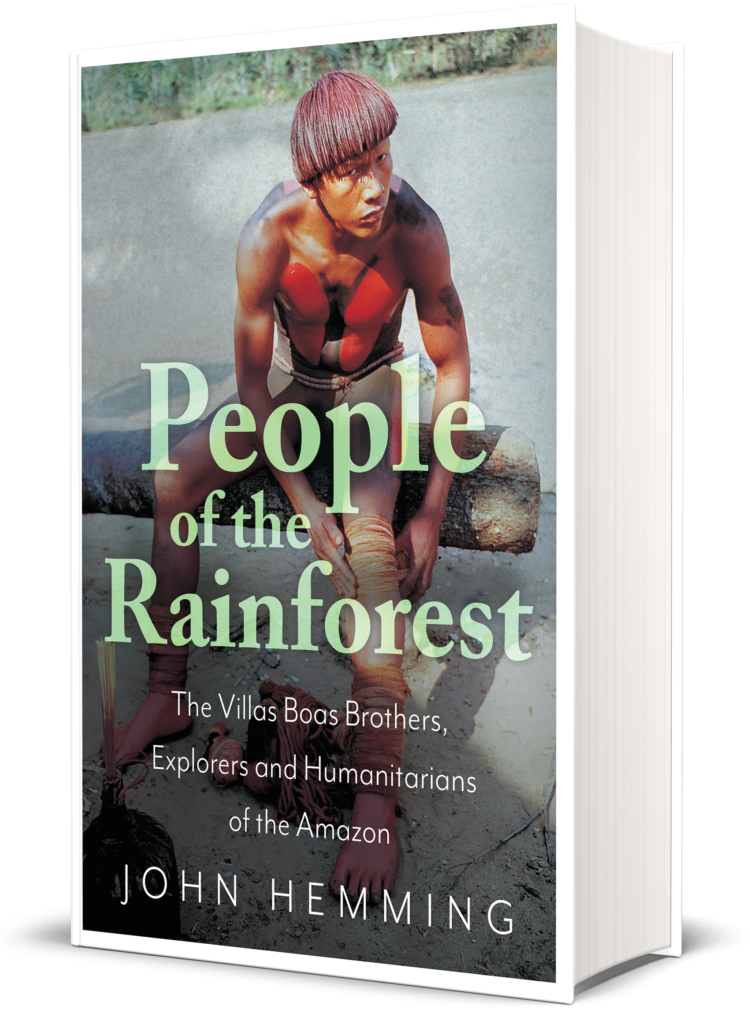The fiftieth anniversary of the creation of the Xingu Indigenous Park was in 2011. All its peoples celebrated this half-century with a three-day Festival of the Xingu Cultures. This was a magnificent gathering, with dances, sporting contests, parades, and ceremonies in the usual blaze of colour from body paint and feather ornaments. Rauni, Megaron, Aritana, Mairawé Kaiabi, Takuman Kamaiura, and other chiefs made speeches to celebrate their peoples’ survival and success, and to inspire young Indians to maintain their way of life. Chief Kuiussi Suiá reminded everyone: ‘We are now commemorating the great conquest that was left for us by the Villas Boas brothers. It was they who ensured our lives here.’ All the participants endorsed a ‘Final Statement’, addressed to the heads of Funai and the relevant ministries. This praised the park’s founders,
who had enabled the indigenous peoples of the Xingu to preserve forever their rivers, forests, songs, and their wisdom in living harmoniously. … Orlando, Claudio and Leonardo Villas Boas appreciated our cultural richness, and they governed our peoples in order to further this. They would certainly have been heartbroken to see the present-day building of hydroelectric dams, clandestine tourism, deforestation, and the pollution and silting up of rivers. Now we no longer have the Villas Boas brothers to advise us and help us to influence the governing elite. We must therefore strengthen our own leaders.
This is what indigenous people are doing, to face the future.
Eight years later in 2019, Brazil’s indigenous peoples faced a terrible unforeseen challenge. The nation, exasperated by massive corruption in its main political parties, elected a populist, evangelical right-winger, Jair Bolsonaro. The new president was deeply hostile to Indians, whom he regarded as an anachronistic impediment to progress. He and his ‘ruralist’ lobby in Congress openly coveted the vast indigenous territories and their natural resources of timber, minerals, and potential farmland. Indigenous rights won in the 1988 constitution, the policy of gradual change pioneered by the Villas Boas, and the significant proportion of the world’s tropical rainforests of which the Indians were custodians, were all threatened. One of the new president’s first actions was to emasculate Funai, by cutting its funding and placing it under the ruralists’ Ministry of Agriculture.
President Bolsonaro claimed that Indians really wanted to get rich, and he offered to ‘integrate’ them into capitalist society by exploiting their lands in agribusiness—in partnership with, or selling out to, local farmers and ranchers. Anthropologists, scientists, jurists, ecclesiastics, and other liberals campaigned against these pernicious policies. So did all Brazil’s indigenous spokesmen; the Villas Boas’s protégés were at the forefront. The octogenarian Rauni, with his trademark lip-disc and feather headdress, made passionate speeches, as he had on a world stage.
Aritana Yawalapiti, a few years younger than Rauni, had been groomed by the brothers to be a chief, and now, half a century later, was the hugely respected paramount chief of all the Xinguanos. Aritana recalled Claudio warning him: ‘When the whites come, they will bring papers and coloured charts to convince you [to part with your land]. But on the day you let them, the Xingu is finished.’ So the wise old chief, always patient, reasonable and dignified, politely rejected Bolsonaro’s fraudulent offer. He said: ‘We do not need to plant [the lucrative crop] soya. We have our clearings with manioc and maize, and our fishing and hunting. The government must respect our way of life.’ The cornerstone of this was a communal society rather than individual greed and competition. But Aritana appreciated that their successful survival needed computers, lawyers, and social media. He was pleased that his son and heir Tapi was studying for a Master’s at the University of Brasilia, as were half a dozen other young Xinguanos. But all would return to their villages with their higher degrees. Orlando and Claudio would have been justifiably proud.

An extract taken from People of the Rainforest: The Villas Boas Brothers, Explorers and Humanitarians of the Amazon by John Hemming.
Hardback | September 2019 | £20.00 | 9781787381957 | 288pp